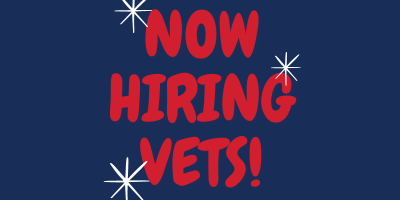 Take a moment to consider your surroundings. Do you feel safe? Do you have access to health care and food? Does your home support you, both physically and mentally? If you work from home part time or full time, is the space sufficient in meeting your work needs? This May is Mental Health Month, and we challenge you to look at your world and how different factors can affect your mental health.
Take a moment to consider your surroundings. Do you feel safe? Do you have access to health care and food? Does your home support you, both physically and mentally? If you work from home part time or full time, is the space sufficient in meeting your work needs? This May is Mental Health Month, and we challenge you to look at your world and how different factors can affect your mental health.
What contributes to mental health?
Where a person is born, lives, learns, works, plays, and gathers, as well as their economic stability and social connections, are part of what are called social determinants of health. The more these factors work in your favor means you are more likely to have better mental well-being. However, when it seems like the world is working against you, your mental health can suffer.
While many parts of your environment can be out of your control, there are steps you can take to change your space and protect your well-being. Earnings from work and, over time, financial independence can help.
Need Help Now?
If you or someone you know is struggling or in crisis, help is available. Call or text 988 or chat 988lifeline.org.
Secure safe and stable housing
This can be challenging due to finances, age and other factors, but there are a few things you can try, such as reaching out to state and local agencies to secure housing, removing safety hazards in the home, or finding another space (such as a community center or staying temporarily at a friend's home) where you can get the comfort you are missing at home. Earnings from work can help you achieve this goal.
Focus on your home
Consider keeping your space tidy, sleep-friendly and well-ventilated. Surround yourself with items that help you feel calm and positive. If you can, designate one room where you'll do your work. Try not to do anything else in that room. If you don't have the extra space, set up a desk or table that's dedicated to work.
Create bonds with your co-workers, neighborhood and community
Get to know the people living around you and those you work with. Make it a habit to try to engage in conversation with your co-workers at least once a week during your break time. Work can lead to life-long friendships and help you feel connected.
Connect with nature
If you're able, hike in a wooded area, sit in a city park, bring a plant inside, or keep the shades open to absorb natural light. If you have the time and access during your break, take a short walk around the block or building. If you don't have time for a walk, eat your lunch outside. Taking breaks to enjoy nature during the day, with your manager's permission, can help change up your workday and calm your mind.
#MoreThanEnough
As you consider these factors that might affect your mental health, we also encourage you to remember, YOU are #MoreThanEnough. The National Alliance on Mental Illness's (NAMI) theme for National Mental Health Month encourages "all of us to come together and remember the inherent value we each hold — no matter our diagnosis, appearance, socioeconomic status, background or ability. We want every person out there to know that if all you did was wake up today, that's more than enough. No matter what, you are inherently worthy of more than enough life, love and healing. Showing up, just as you are, for yourself and the people around you is more than enough."
Want to learn more about the connections between mental health and employment? Join us June 21, 2023, for our next Webinar: "Ticket to Work and Mental Health."
How Can Ticket to Work Help?
Remember, wherever you are on your journey, you are #MoreThanEnough. If you're ready to see if employment is a good fit for you, we're here to help. Social Security's Ticket to Work (Ticket) Program supports career development for people ages 18 through 64 who receive Social Security disability benefits (SSDI/SSI) and want to work. Through this free and voluntary program, eligible participants can work with service providers to receive the service and supports they need to find and maintain employment as they move toward financial independence through work.
Connect with a Ticket Program service provider, such as an Employment Network (EN) for career counseling, including help with identifying reasonable accommodations. Your service provider can work with you to determine which accommodations may help you succeed in the workplace. Find one today!
Learn More
To learn more about the Ticket Program, visit choosework.ssa.gov or call the Ticket to Work Help Line at 1-866-968-7842 or 1-866-833-2967 (TTY), Monday through Friday, 8 a.m. to 8 p.m. ET. You can also learn more by registering for a free, online Work Incentives Seminar Event webinar. Or text TICKET to 1-571-489-5292 to receive Ticket Program texts. Standard messaging rates may apply, and you can opt out at any time.

 When you think of work accommodations for someone who has a disability, you may immediately think of people with physical disabilities, such as those with mobility issues, hearing impairments or blindness. But did you know there are many possible accommodations for employees who have a mental illness?
When you think of work accommodations for someone who has a disability, you may immediately think of people with physical disabilities, such as those with mobility issues, hearing impairments or blindness. But did you know there are many possible accommodations for employees who have a mental illness? It takes many employees to run movie theaters, performing arts centers, sports arenas, amusement parks and other entertainment venues. Typically, jobs in these facilities include ushers, ticket takers and cashiers. According to the
It takes many employees to run movie theaters, performing arts centers, sports arenas, amusement parks and other entertainment venues. Typically, jobs in these facilities include ushers, ticket takers and cashiers. According to the  It's hard to know how to start looking for a job, especially if you don't know what you want to do. If you've never worked or if you're looking for a job in a new field, it might be helpful to take a look at the 16 National Career Clusters as identified by the National Association of Career Technical Education Consortium.
It's hard to know how to start looking for a job, especially if you don't know what you want to do. If you've never worked or if you're looking for a job in a new field, it might be helpful to take a look at the 16 National Career Clusters as identified by the National Association of Career Technical Education Consortium.
 "You can't stay in your corner of the Forest waiting for others to come to you. You have to go to them sometimes."
"You can't stay in your corner of the Forest waiting for others to come to you. You have to go to them sometimes."  We hope we gave you a new way to think about your job search. What is your favorite advice from Winnie the Pooh?
We hope we gave you a new way to think about your job search. What is your favorite advice from Winnie the Pooh? It was a new year and Rebecca was in remission from cancer. She says she felt like a walking miracle. As she recovered her strength, she looked forward to connecting with a wider circle of people and felt ready to return to the workforce. Formerly a teacher, she wanted to try out a new field of work.
It was a new year and Rebecca was in remission from cancer. She says she felt like a walking miracle. As she recovered her strength, she looked forward to connecting with a wider circle of people and felt ready to return to the workforce. Formerly a teacher, she wanted to try out a new field of work.